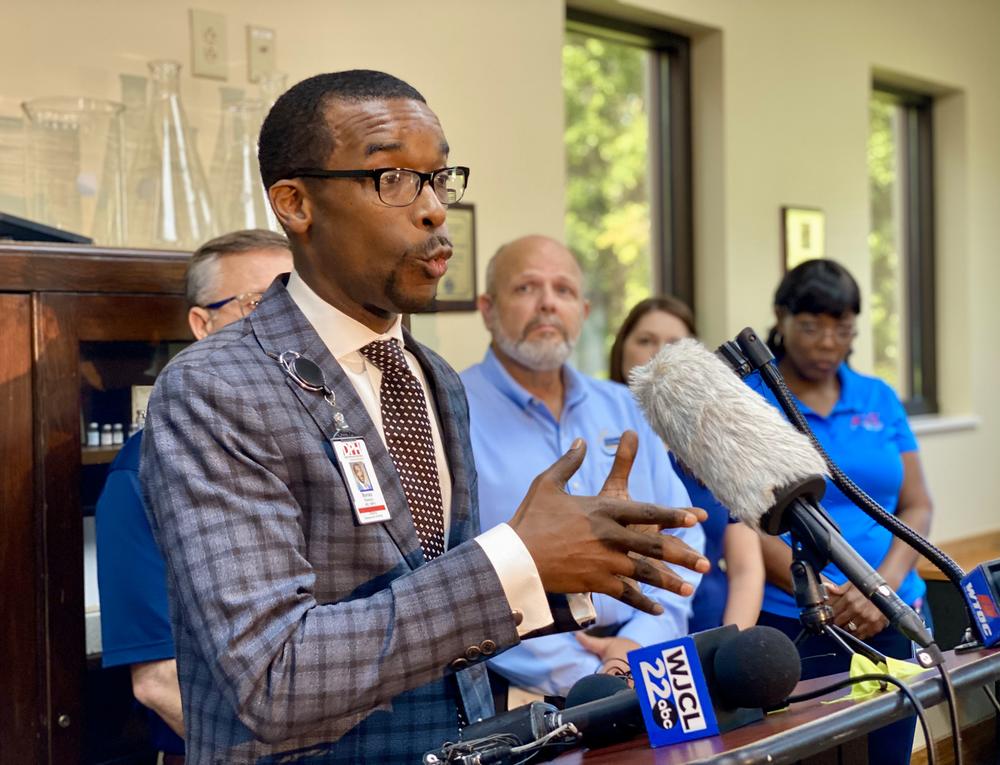
Caption
Coastal Health District director Dr. Bonzo Reddick speaks at a news conference at the Chatham County Health Department in Savannah on Friday about public health risks in the wake of Tropical Storm Debby.
Credit: Benjamin Payne / GPB News

